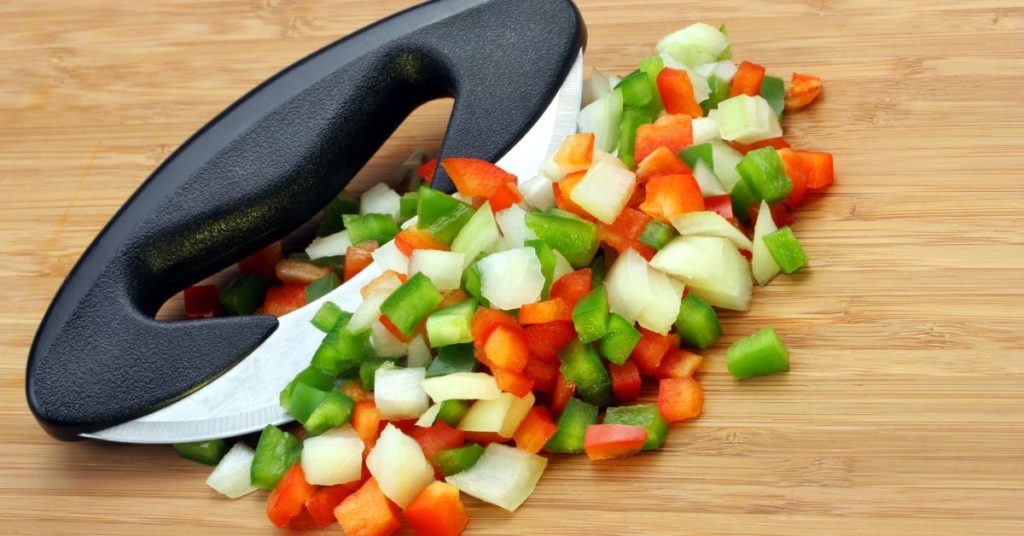Yes, you can make mistakes on the Mediterranean Diet. And it’s more common than you’d think.
As often cited on this blog, the Mediterranean Diet, renowned for its health benefits and delicious flavors, has gained significant attention in recent years with the popularity of The Blue Zones, The Longevity Diet, and the like. With its emphasis on fresh fruits, vegetables, whole grains, lean proteins, and healthy fats, this dietary pattern is known to promote heart health, reduce the risk of chronic diseases, and contribute to overall well-being.
However, despite its simplicity and flexibility, many individuals stumble upon common pitfalls when attempting to adopt the Mediterranean Diet — or perhaps more accurately, the Mediterranean lifestyle.
In this article, we will explore the most prevalent mistakes people make when starting their Mediterranean Diet journey, and provide practical tips and strategies to overcome them.
Mistakes on the Mediterranean Diet
By understanding the most common mistakes on the Mediterranean Diet and learning how to navigate around them, you can set yourself up for success by embracing a sustainable Mediterranean lifestyle. Let’s get started. Listen on the podcast or continue reading below.
Lack of Proper Education on the Fundamentals of the Mediterranean Diet
It’s crucial to understand that the Mediterranean Diet is not a rigid set of rules, but rather a flexible and balanced approach to eating. While the diet emphasizes nutrient-dense whole foods, it also allows for occasional indulgences in moderation.
Some individuals may interpret the Mediterranean Diet as a license to consume unlimited quantities of certain foods, leading to imbalances and potential overconsumption. Consuming excessive portions, even of nutritious foods, can lead to an overabundance of calories and potentially hinder your weight management goals.
To overcome this challenge, familiarize yourself with portion guidelines and practice portion control. Use measuring cups, kitchen scales, or visual cues to gauge appropriate serving sizes.
Overemphasis on Specific Foods of the Mediterranean Diet
While certain specific ingredients are indeed important components of the Mediterranean Diet, it’s crucial to avoid overconsumption or reliance on a select few items.
Olive Oil in Mediterranean Cooking
One common error is an excessive consumption of olive oil. While olive oil is a key ingredient in Mediterranean cuisine and offers numerous health benefits, it’s important to remember that it should be used in moderation.

Olive oil is a healthy source of monounsaturated fats, but it still contributes calories to your diet. Using excessive amounts in cooking can lead to a surplus of calories, potentially hindering weight management goals.
Don’t use extra-virgin olive oil for high-heat cooking. Once it reaches 400°F, it breaks down and starts to lose its nutritional value, not to mention its complex and delicate flavors. Even worse, heat-damaged oils oxidize and become pro-inflammatory.
Instead, use olive oil as a flavorful accent in dishes, dressings, or marinades while being mindful of portion sizes.
The Role of Pasta and Bread
Another food group that often becomes the focus of attention is carbohydrates, particularly pasta and bread. While these foods have their place in the Mediterranean Diet, it’s essential to prioritize whole grains and practice portion control.
Opt for whole grain pasta, bread, and couscous, which offer higher fiber content and more nutrients compared to their refined counterparts. Additionally, incorporate a variety of other grains like quinoa, barley, and bulgur to diversify your carbohydrate sources and add nutritional value to your meals.
Maintaining variety is key to deriving maximum benefits from the Mediterranean Diet. Neglecting the importance of incorporating a wide range of foods can lead to nutrient deficiencies and monotony in your eating habits.
Too Much of a Good Thing Can Be Bad
Remember, the Mediterranean Diet celebrates the rich tapestry of ingredients, so embrace the diversity and nourish your body with a wide range of whole foods.
Other ingredients that tend to be over-emphasized are fish and seafood, as well as (red) wine. While these ingredients play key roles, too much of them on a daily or weekly basis has a negative effect.
Rule of thumb: A glass of wine once or twice a day; a portion of fish or seafood once or twice a week.
Neglecting Whole Food Sources
This is a big one! A crucial aspect of the Mediterranean Diet is the emphasis on whole, unprocessed foods. However, one common mistake individuals make is neglecting these whole food sources and opting for processed or packaged “Mediterranean” foods instead.
Read labels, yes, but always with a healthy dose of skepticism.
It’s important to remember that convenience doesn’t always equate to healthiness. Packaged foods labeled as “Mediterranean” may contain added sugars, unhealthy fats, and artificial ingredients that can undermine the benefits of the diet.
To avoid this pitfall, prioritize fresh, whole foods in your Mediterranean Diet journey. Opt for whole fruits and vegetables, rather than canned or prepackaged ones, to ensure you’re obtaining the full range of nutrients and flavors.

Select minimally processed grains like brown rice, quinoa, and whole wheat bread instead of refined versions. Choose lean proteins such as fish, poultry, and legumes over processed meats. By focusing on whole food sources, you’ll enhance the nutritional quality of your meals and reap the full spectrum of health benefits associated with the Mediterranean Diet.
Lack of Meal Planning and Preparation
Meal planning and preparation play a pivotal role in successfully adopting and sustaining a Mediterranean Diet. However, many individuals stumble by neglecting these crucial aspects.
Without proper planning, it becomes challenging to make mindful food choices, and it’s easy to fall into the trap of relying on convenience foods or takeout options, which may not align with the principles of the Mediterranean Diet.
To overcome this obstacle, allocate time each week for meal planning. Start by creating a list of recipes you want to try or staple dishes you enjoy within the Mediterranean Diet framework.
Carve out dedicated time for meal preparation. Set aside a few hours each week to cook in bulk, chop vegetables, prepare grains, and cook proteins. This way, you’ll have prepped ingredients on hand, making it easier to assemble quick, wholesome meals during busy days. Consider batch-cooking dishes that can be enjoyed over several days, ensuring you always have a nutritious option readily available.

With meal planning and preparation, you’ll not only save time and effort but also increase the likelihood of sticking to the Mediterranean Diet and enjoying the benefits it offers.
Inadequate Social and Cultural Support
Embarking on a Mediterranean Diet journey can sometimes be challenging when there is a lack of social and cultural support. Dining out or socializing with friends and family who may not be familiar with the principles of the Mediterranean Diet can lead to feelings of isolation or temptation to deviate from your goals.
Additionally, cultural influences and traditional eating habits may clash with the Mediterranean Diet, making it difficult to navigate cultural events and gatherings. Let’s face it, in the U.S., our food delivery systems simply are not designed to accommodate this choice. It’s up to the individual to fight for their health.
Engage with friends and family members, educating them (without pestering them!) about the benefits of the Mediterranean Diet and involving them in your journey. Unlike other, more restrictive dietary regimes, the Mediterranean Diet offers a variety of fresh, wholesome options that you can easily find at almost every restaurant. So there’s no need to be a nuisance to the waiter or chef with your odd dietary requests.
Disregard for Physical Activity and Lifestyle Factors
While the Mediterranean Diet places significant emphasis on food, it is essential not to overlook the importance of physical activity and other lifestyle factors. Engaging in regular exercise not only contributes to overall health but also complements the benefits of the Mediterranean Diet.
To address this, incorporate physical activity into your Mediterranean LIFESTYLE journey. Aim for a combination of cardiovascular exercises, such as brisk walking, swimming, or cycling, along with strength training to build and maintain muscle mass.

Find activities that you enjoy and make them a regular part of your routine. No need to run marathons or do crossfit if you don’t enjoy it. Gardening is a good one, as is playing with children.
Additionally, prioritize other lifestyle factors, such as adequate sleep and stress management. Sleep deprivation and chronic stress can negatively impact your overall health and well-being, potentially interfering with your ability to stick to the Mediterranean Diet.
Remember, the Mediterranean Diet encompasses more than just the food you consume. It is a holistic approach to well-being that integrates physical activity, restful sleep, and stress management. By incorporating these lifestyle factors into your Mediterranean Diet journey, you’ll optimize the benefits of the diet and cultivate a balanced and fulfilling lifestyle.
Unrealistic Expectations and All-or-Nothing Mindset
One of the most significant pitfalls individuals encounter when starting or following a Mediterranean Diet is setting unrealistic expectations and adopting an all-or-nothing mindset. It’s common to want immediate results or strive for perfection, leading to frustration and disappointment when expectations aren’t met.
This mindset can hinder long-term success and create an unsustainable relationship with food and lifestyle changes. Understand that lasting change takes time and that progress is often gradual. Instead of fixating on specific outcomes or numbers on the scale, focus on the overall improvement in your health and well-being.
Celebrate small victories along the way, such as consistently incorporating more vegetables into your meals or choosing whole grains over refined options.
It’s important to recognize that occasional indulgences or deviations from the diet are a normal part of life. Adopting an all-or-nothing mindset can create an unhealthy relationship with food, leading to guilt and a cycle of restriction and overindulgence.
Instead, practice mindful eating and allow yourself to enjoy special treats or social occasions without judgment. Remember, the Mediterranean Diet is not about deprivation but about finding balance and nourishing your body with wholesome foods the majority of the time.
NOT Incorporating Periods of Fasting
In traditional Mediterranean cultures, occasional periods of fasting have been practiced for centuries and have played a significant role in the region’s dietary customs.
While the Mediterranean Diet itself does not prescribe specific fasting protocols, intermittent fasting has been observed as a common practice in some Mediterranean countries. These periods of fasting typically involve abstaining from food or specific food groups for a certain duration, followed by periods of normal eating.

Incorporating occasional periods of fasting can offer additional health benefits and complement the principles of the Mediterranean Diet. Fasting has been associated with improvements in insulin sensitivity, metabolic health, and weight management.
By allowing the body to enter a fasting state, it can undergo cellular repair processes, enhance fat metabolism, and optimize hormone regulation. This practice aligns with the Mediterranean Diet’s focus on overall well-being and the promotion of a healthy metabolism.
It’s important to approach fasting with caution and consult with a healthcare professional or registered dietitian, particularly if you have underlying health conditions or specific dietary needs. Remember that fasting should be practiced in a balanced manner and should not compromise the intake of essential nutrients or disrupt a healthy relationship with food.
Mistakes on the Mediterranean Diet – Conclusion
Embarking on a Mediterranean Diet journey can be a transformative and rewarding experience for your health and well-being. However, it’s crucial to avoid common mistakes that may hinder your progress or discourage you along the way.
By understanding the potential pitfalls and implementing strategies to overcome them, you can ensure a successful transition to a Mediterranean lifestyle. Remember, the Mediterranean Diet is not just a short-term fix, but a sustainable approach to nourishing your body and embracing a fulfilling lifestyle where food is but one component of healthy living.
What are examples of a Mediterranean diet?
Greek cuisine emphasizes the consumption of olive oil, fresh fruits and vegetables, whole grains, legumes, yogurt, cheese, and fish. Iconic Greek dishes like Greek salad (Horiatiki), Moussaka, Souvlaki, and Tzatziki are beloved components of the Mediterranean Diet.
Italian cuisine features abundant use of olive oil, fresh vegetables, fruits, whole grains, pasta, bread, cheese, and seafood. Classic Italian dishes like Caprese salad, Minestrone soup, Margherita pizza, and Mediterranean-inspired pasta dishes.
Spanish cuisine showcases a focus on fresh, seasonal ingredients. Olive oil, tomatoes, garlic, onions, legumes, seafood, and a variety of cured meats, like Jamón, are key components. Traditional Spanish dishes such as Gazpacho, Paella, Tortilla Española, and Tapas beautifully reflect the flavors and principles of the Mediterranean Diet.
